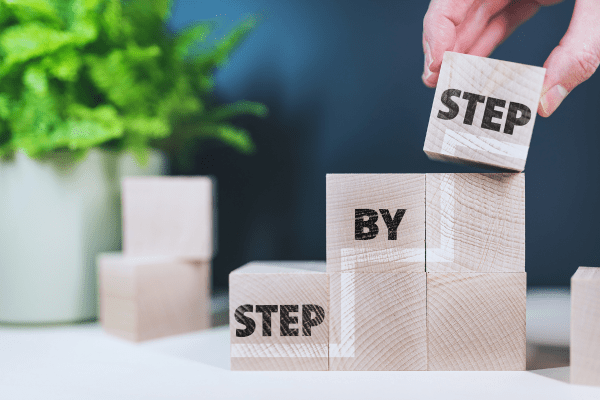You can sign up to our LinkedIn newsletter here.
Finding Freedom: Part Two – Are you fearing fear itself?
When working for myself, I was willing to work absurd hours on absurd occasions because I felt it was all for me. But when I entered big international consulting and joined the Andersen Business Consulting organisation, I realised that they believed they owned you, in principle, every waking hour of my life.
Slavery
It wasn’t explicit; it was cultural. So, it was acceptable to expect me to handle emails every day of the week and check voicemails regularly. It was acceptable to assume that I would travel anywhere in the world whenever requested, even if it meant leaving for the airport on a Sunday morning or returning from overseas on a Saturday morning. Working all night on a big proposal was permissible, followed by getting up at dawn to be at a client site for an 8 o’clock meeting. All these expectations were part of the culture.
Beyond that, the culture took shape when you weren’t working. You were expected to go out on the town, have a meal, visit a club together, and then find your way back to the office at 2 or 3 in the morning, ensuring you had a fresh shirt at your desk. If not, you’d stop by a men’s outfitter first thing in the morning to ensure you were appropriately dressed.
That was the lifestyle and work-style of this culture. This was a kind of slavery for many people who hadn’t experienced anything else since they left university. The exchange was that you could enjoy a wonderful time within its boundaries by being part of that culture and buying into it. However, you relinquished any opportunity to have freedom outside your waking hours.
I may be exaggerating slightly, but it was indeed very much like that.
First Steps
So, what did “small steps to freedom” mean for me? The first thing was taking my holiday entitlement—booking and taking time off. The second thing was not spoiling my holiday by working through it. Yes, I would spend an hour before the day started just touching base, ensuring everything was OK, sending a few emails, and listening to a few voicemails, but just an hour.
I would take another day’s leave after my holiday to catch up on everything, rather than coming to the office with a huge backlog. And yes, I might work late the day before my holiday to clear all my outstanding emails. But I had holidays, and the third step toward freedom was challenging the assumption that I should work late into the evening whenever required.
The example was set for me by a colleague with the same status as mine, who would always leave the office on time when football was on or when his son was playing. He would go on time, once or twice a week, regardless of the circumstances. So, I started to draw the line. I began to say, “No. I got in early this morning. I was in the office by 7am, and as a rule, I will leave between 5:30 and 6:00.” It would be extraordinary if I worked beyond 6 pm.
I was an experienced hire, so I hadn’t lived in that culture since leaving university. I had the opportunity to explore something different, so I was taking small steps toward freedom.
What are your Small Steps?
What would your small steps to freedom be? Perhaps it involves having a difficult conversation about not working late, avoiding early arrivals, or opting out of unproductive meetings. It might mean challenging the expectation to perform tasks well below your pay grade, simply because they won’t hire the right person. Maybe it’s questioning the assumption that being present in the office or on Zoom during work hours is necessary, while doing the work is expected in the evenings or on weekends.
Maybe it’s about saying ‘no’ to unnecessary executive travel, which could be accomplished more effectively and efficiently through video conference. Or perhaps it’s saying, “I deserve some training. I deserve more control over how, where, and what I’m doing in this organisation.” Small steps to freedom.
Planning your Escape
However, the other small steps to freedom involve creating an escape route. What does that look like? Well, there are various ways you could do this. Developing relationships with headhunters is often beneficial, as is cultivating a reputation within your professional body, both ensuring you’re on the radar of others who might hire you. Additionally, establishing a personal presence on LinkedIn can help to give you a distinctive voice, a unique point of view, and a following, which could attract interest from other employers or opportunities outside employment.
Another step could be to start a non-executive role as a school governor, charity trustee, or board advisor to a scaling-up business. Finally, pursuing studies and investing in yourself with new skills and professional capabilities is crucial. Often, the most powerful approach is to focus on softer skills rather than technical ones. This might include participating in an improv course, learning about emotional intelligence, staying up to date with the latest developments in AI, or finding a leadership program.
Beyond the Gilded Cage
All these actions can help you see beyond the beautiful, gilded cage you’re in and envision what it might look like if you begin to push the door to your cage open.

Charles McLachlan is the founder of FuturePerfect and on a mission to transform the future of work and business. The Portfolio Executive programme is a new initiative to help executives build a sustainable and impactful second-half-career. Creating an alternative future takes imagination, design, organisation and many other thinking skills. Charles is happy to lend them to you.
